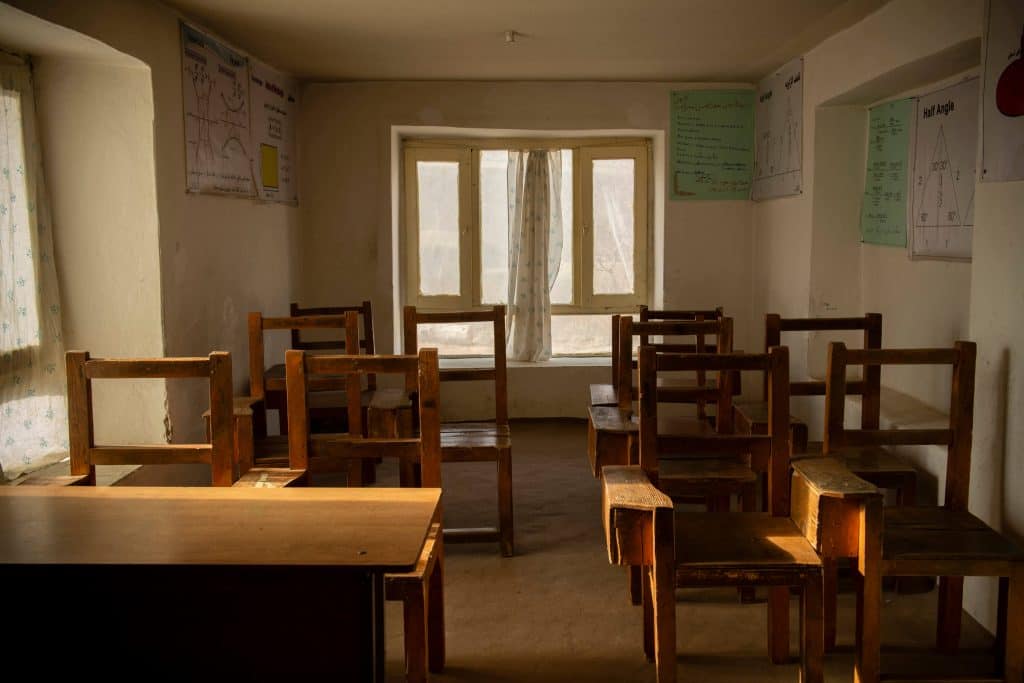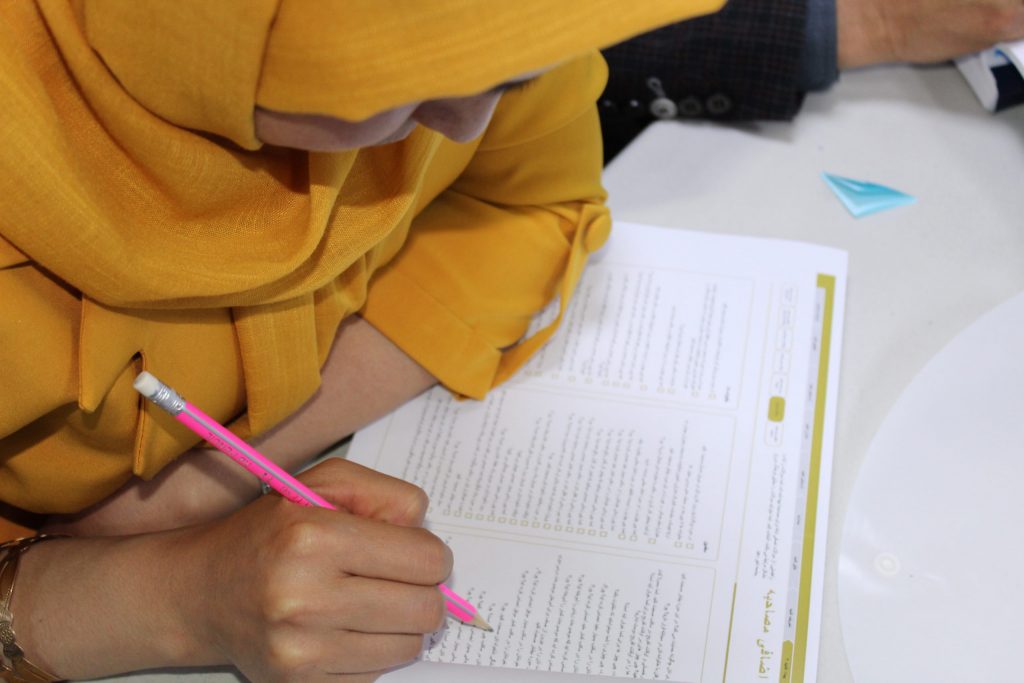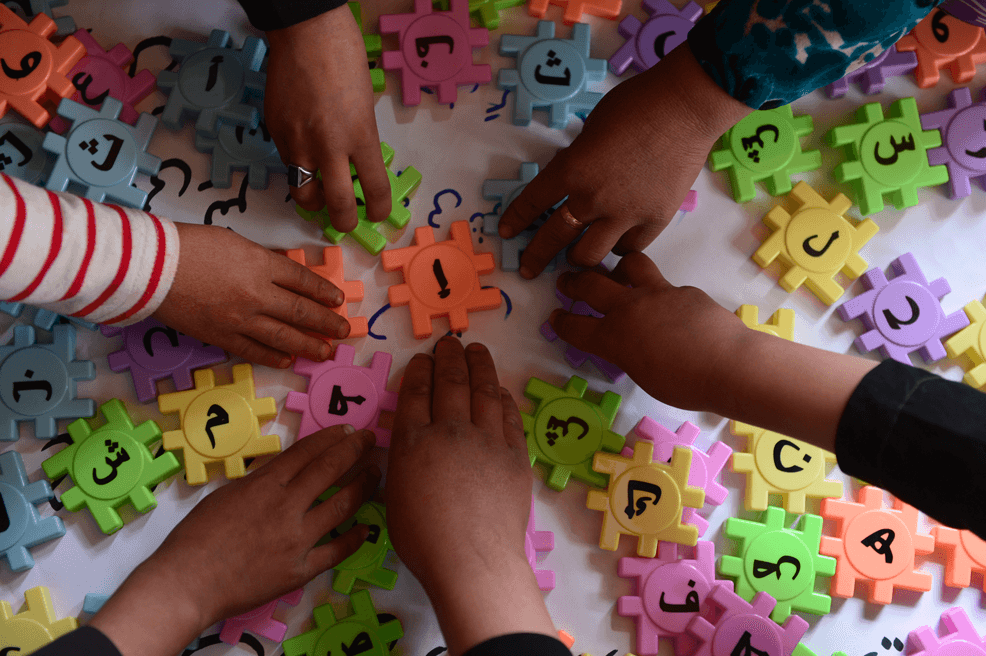Since the outset of the Schools2030 programme in 2020/21, Afghanistan has undergone considerable upheaval with student learning, initially with the COVID-19 lockdowns, and then with situational changes to the national education system. This has meant that in some case students have missed up to six or more months of schooling. To help fill these gaps, the Schools2030 team in Afghanistan has been working with teachers and communities to find solutions and ensure minimal disruption for students. One way they are achieving this is through consolidation classes which provide opportunities for children in need of extra learning support.
A Boys’ High School in Baghlan, and a Mixed School in Bamyan, are two such schools where consolidation classes have been designed by teachers through Schools2030’s Human-Centred Design (HCD) workshops. In the Baghlan school, the HCD team is made up of eight teachers – including three school leaders – who teach a range of disciplines that include social science and economics. In the initial ‘Assess’ phase (of Schools20203’s Three-Step Model) they discovered that 66% of students in Grade 7 had problems with forming sentences, reading text, comprehension, grammar and other literary functions in Dari. They also found that 59% of students struggled with simple mathematical understanding and arithmetic. In the school in Bamyan, these numbers were as high as 67% for literacy and 75% for numeracy.

Teacher-led design teams in both schools decided that consolidation classes could offer students the best possible solution for improving the gaps in their knowledge. The next step was to determine how to make these classes as effective, engaging and fun as possible for the students. Through the HCD workshops, the teachers were given space to work collaboratively to design activities for the consolidation classes that are student-centred and meaningful to the students. Often there is a lot to catch up on so it is essential that students are engaged from the get-go. The classes focus on Dari, mathematics and science, for Grade 4 (10 years old) and Grade 7 (15 years old) students.
In Baghlan, the teachers developed a series of activities primarily based around games and puzzles. In addition to a series of science and numeracy activities such as ‘memory’ and other games, the classes also offered literacy games, which included group story-writing, using pictures to tell stories, proverb completion and other games.These games had the added benefit of also improving students’ problem-solving, creativity and collaboration skills.
The school in Bamyan also took a games-based approach. The teacher-led design team devised ‘the game of letters and numbers’, which used magnetic letter and number cards allowing students to rearrange, create and problem-solve simple questions. Students were also encouraged to make geometric shapes and discuss how these might be connected to everyday structures or items like buildings or furniture.
The classes have now been underway for five months in Baghlan and four months at Bamyan, and teachers are already noticing an improvement in student attentiveness, concentration, collaboration and learning in general. Ghulam Hazrat*, a teacher in the consolidation class at Baghlan, said: “by using the new activities our students became more interested in participating in this class. Hafiz was one of our slowest learners but now he is in the top ten students in his grade.”
Malik, a teacher, noted the positive impact of this innovation at the Bamyan school: “at the beginning of the class, the majority of students were not able to read and write simple texts in Dari. Now most of the students can read and write simple text. And through the group work, the students’ communication skills also improved, they are more supportive and tolerant of each other, and more willing to share their idea in the class.”

The change in students has also been noticed by some of the parents, as father, Din Mohammad, commented: “after Abdul enrolled in the consolidation class he became more interested in learning because all the activities are student-centred and fun for them”.
As a result of new, practical teaching and learning approaches, the students’ learning outcomes are slowly seen to be improving. Not only are they getting better results in literacy, numeracy and science, but many teachers are reporting increased self-esteem and confidence in the children, who share their ideas much more freely and seem much more analytical in their approach to new knowledge.
The consolidation classes are now drawing to a close in both schools and teachers will carry out then carry out an endline assessment with Schools2030’s assessment tools and supported by Schools2030 global and national assessment partners. The tools will help the teachers measure how successful the classes have been in improving student outcomes. If the classes and teaching methods ultimately prove successful, these teachers will be able to offer evidence to other schools and communities across the region to show that student-centred teaching is effective at getting better results. But also – most importantly – the classes are proving to students that learning can be a joyful, collaborative and meaningful process that can support them on the path to happy futures.
*all names have been changed to protect the identities of those involved
